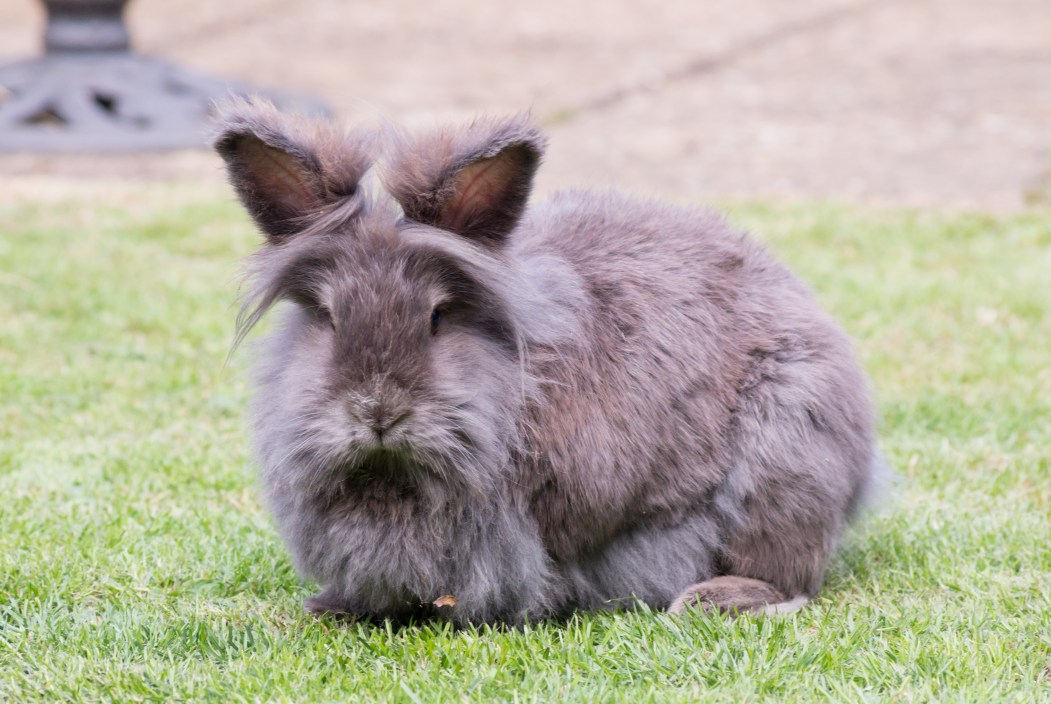Residents of a Florida community are contending with a new "invasive species" in their suburb outside of Fort Lauderdale. While the state is known for the destructive habits of non-native Burmese pythons, this particular invasive species is a little cuter and a whole lot fluffier: Lionhead rabbits.
It's estimated that there are 60 to 100 Lionhead rabbits currently taking over Jenada Isles, an 81-home community in Wilton Manors outside of Fort Lauderdale. They are believed to be the descendants of a group of bunnies that a backyard breeder illegally let loose when she moved away two years ago.
And while hopping around a Floridian suburb and being fed by the neighbors may seem like an ideal situation, unfortunately, Florida's environment is not friendly to Lionhead rabbits. So named for the furry, flowing mane around their heads, they have an extremely heavy coat that could cause them to overhead during Florida summers. Their lack of fear and comfort with humans also makes them susceptible to cars and predators. Munching on manicured lawns isn't healthy for them either, and they've been making snacks out of outdoor wiring, too.
While rabbits can live 7 to 9 years if properly taken care of, the lives of the feral Lionhead rabbits are likely to be brutal and far shorter. Officials and residents have been discussing solutions that would spare the rabbits from being euthanized.
In April, local leaders discussed the option of calling in a trapping service to remove the bunnies from the neighborhood. This idea was quickly shot down, however, as the trappers have no place to put the bunnies, and residents worried that the bunnies would just wind up dead. Chris Caputo, Wilton Manor's City Commissioner, called the proposed effort the "Bunny Blitz".
"They really need to be rescued. So we've tried to get the city to do it, but they're just dragging their feet," says Alicia Griggs, who is spearheading efforts to raise money for a rescue group to neuter, vaccinate, and shelter the rabbits. It's estimated the rescue effort will cost $20,000 to $40,000. And, as Monica Mitchell, whose East Coast Rabbit Rescue would likely take on the effort, explains, capturing, treating, and finding homes for the rabbits won't be an easy process. There aren't many veterinarians that treat rabbits, and as an exotic pet, the rabbits require more upkeep and care than many people realize.
It's a problem that needs to be dealt with, and soon. Resident Courtney Turney says, "You can leave no bunny behind," but as officials and residents decide what to do, the situation is only getting worse. The rabbits of Wilton Manor are continuing to multiply like—well, rabbits.




